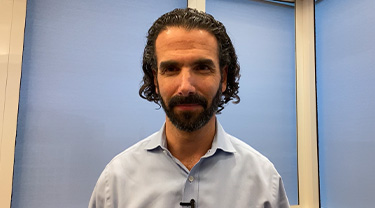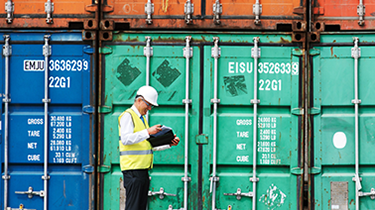
Doing business in Colombia: 10 business etiquette tips
Author details
Tamara Fathi
Chief representative
It may come as a surprise to learn that Canada has had a free trade agreement with Colombia since 2011. In 2022, two-way trade topped $3.2 billion, making it Canada’s fifth-largest trading partner in Latin America and the Caribbean.
While the relationship is strong and the groundwork has been set, there’s plenty of room for growth. Export Development Canada (EDC) opened our international office in Bogota, Colombia, in 2013, facilitating more than $4 billion in financing during our first 10 years there. Today, we serve more than 320 customers annually.
With a population of more than 52 million and a rich cultural heritage, Colombia is a diverse country with an abundance of natural resources. While the market is open and there are opportunities for Canadian companies in a range of sectors, including power, infrastructure, and cleantech, challenges remain. To start, there’s simmering social and political unrest, and its bureaucratic processes can be unpredictable and complicated. Efforts are being implemented to promote greater transparency.
Colombians are hard-working and enjoy creating meaningful connections. Building relationships is an essential step in developing trust. Here’s an overview of top etiquette tips for doing business in this fascinating part of the world.
10 etiquette tips for doing business in Colombia
1. Speak the language: While it’s not essential, having a representative who speaks Spanish could help open doors for a Canadian company looking to do business in Colombia.
2. Hierarchy is important: Colombians are very welcoming and like to connect with people at the top of an organization.
3. Dress it up: There are various business hubs in Colombia; be prepared to engage with companies based in cities other than Bogota, including Medellin, Cali, and Barranquilla. In cold- weather cities, work attire is more formal, so people should wear business suits, especially for the first meeting. In other parts of the country, where weather is warmer, the suit can be dressed down.
4. Business in boardrooms: Business meetings often take place in boardrooms, especially in the early stages. Once a relationship is well-established, meetings may be held in a restaurant for lunch or dinner. But meetings with government officials, regardless of when they occur, are always in offices.
5. Mind the clock: Punctuality, on the part of their guests, is important to Colombians. If you’re having a training session, build in a buffer, in case your counterparts are late. Sometimes, key decision-makers come only for the last 10 minutes of a meeting. Keep in mind that traffic in Latin America is almost always jammed, especially in Bogota. It’s unrealistic to expect to successfully get through more than three meetings in Bogota in one day. Planning for two is a safer bet.
You should also check out
Learn everything you need to know about exporting to Mexico and Latin America with free trade agreements.
6. Negotiation is part of the game: In Latin America, everyone negotiates. It’s important to do your research on pricing, including the local prices in your sector. You should also be prepared to present arguments to defend your price. If you’re well-informed on what your competition is offering, you can change the price and possibly the payment terms, for example, to make your offer more attractive. But expect some negotiating.
7. Patience is necessary: Business takes a little longer in Colombia than it does in Canada, and it can often feel like it’s one step forward and two steps back. Sometimes, it’s not the company causing the slowdowns—it can also be regional politics and uncertainty. Do your homework and understand the current political situation in Latin America—it can be volatile at times.
8. Facetime matters: Even if you have a representative in Latin America who’s looking after your business, your counterparts still want to see you and senior members of your team. Travelling to spend time with them might make the difference in securing future deals. If you have an agent, you may not have to go as often, but still periodically. Take advantage of today’s virtual tools to stay connected. WhatsApp is one of the most common and easiest ways to stay connected in Colombia.
9. Make them feel supported: What happens if something goes wrong with your product or service? It’s critical for the customer to know that the chosen vendor will have the structure and tools to support them appropriately.
10. Do your due diligence in their language: Having your documentation prepared in Spanish shows customers you’re ready to do business in Latin America. Don’t use Google translate. Your customers will see through that.
Remember: It’s Colombia, not Columbia!
For inquiries about the Colombian market, please contact Tamara Fathi, EDC’s chief representative, Andean Region, Central America and the Caribbean, tfathi@edc.ca
Check out EDC’s Country Risk Quarterly, which highlights economic uncertainty and opportunity at the global and country level. It also identifies the issues that affect the country risk rating to help you make informed trade and investment decisions.
EDC provides many resources that exporters can use to monitor global risk. To explore these areas, please refer to our Knowledge Centre, solutions and Export Help Hub.

















